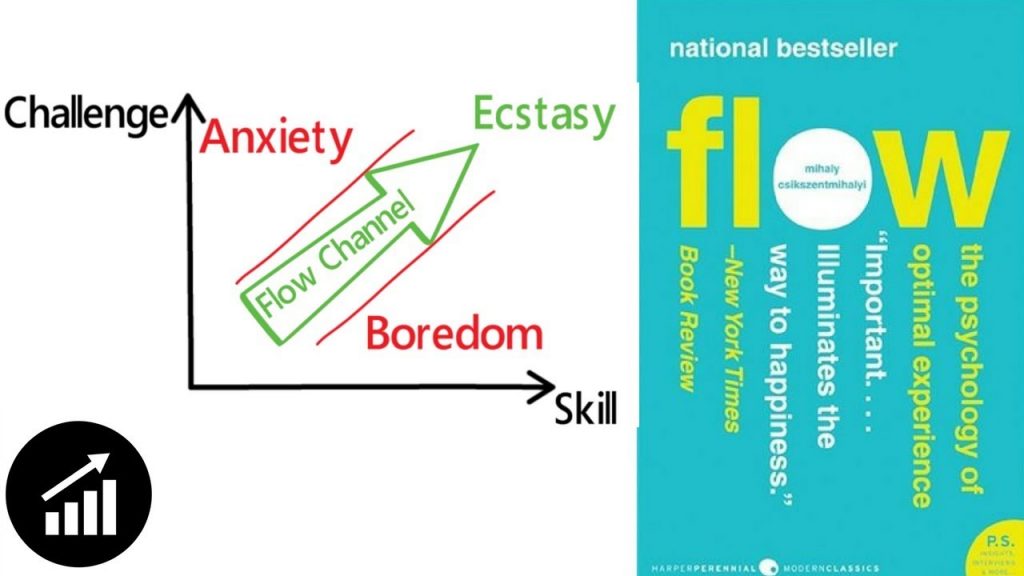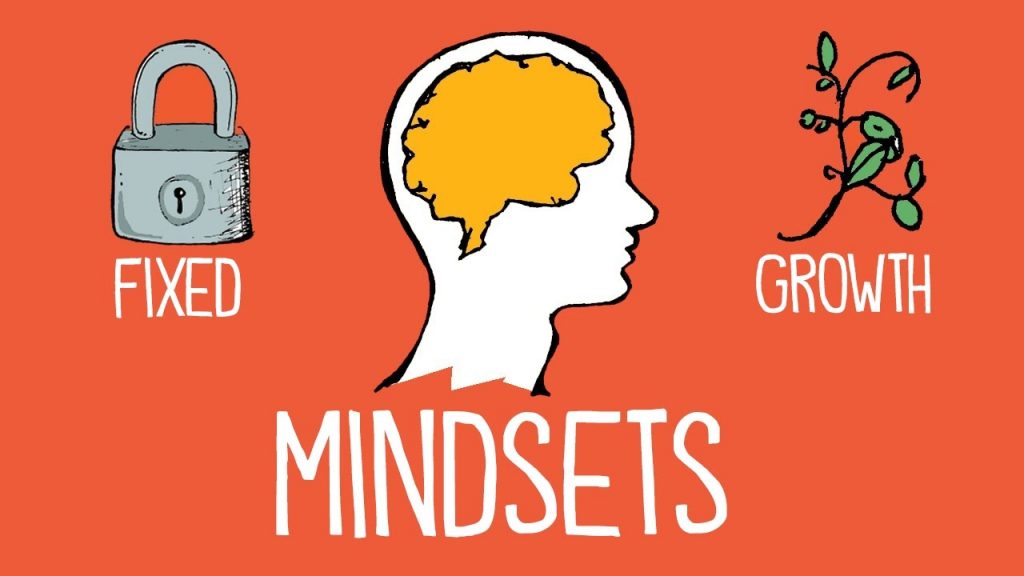“Dad, I got 98 out of 100 in Mathematics.”, says the bright child with results in his hand. The dad’s discouraging response is, “Why not centum?”
While thankfully not a precedent at my home or my wife Priya‘s, the community that we belong to, i.e. Brahmin community of Tamil Nadu in India, is notorious for its insistence on getting the perfect score in examinations, especially in a subject like maths or science where all the questions are objective and you could potentially score 100%.
While I definitely question the extremely high score standards set by the community, my problem starts with the system itself. A system which makes it possible to score a centum in examinations. If you already know the answers to every challenge in a test, what did you learn that day?
It’s raining scores today
My graduation was in 2003, nearly two decades ago, from the University of Mumbai in Maharashtra. I also completed post-graduation in 2006. My scores were 75% and 70% respectively. This may sound abysmally low, consigning me as an average student by today’s standards. But both my certificates say that I have earned an academic distinction! You see, the city-wide top scores were 78% and 76% respectively. University of Mumbai did not award scores too easily. You had to earn it. And for it, you had to do really well.
It’s not the same anymore. Today the university has loosened its standards. Scores like 90% are far too common. I admire the students who score 75%, only to realise that the university topper bagged 98%. Students who score 75% today would have amounted to 60% two decades ago. Ergo, a 75% bagger today really is just an average student.
Why would you award 75% (3/4th of the total score in offer) to a student who is just average? Why would you want to set an examination and an awarding system where students can score over 90% too easily. Is it because you don’t want to hurt them or dent their self-confidence? This may work for the short-term, but I doubt if it is beneficial over the long term.
The story of two tests
Let me give you a very simple example. A 5-year old boy, Hari, has been taught addition. In typical modern schooling style he has been drilled that 1 + 1 is 2, 2 + 2 is 4 and so on. He has been told to use fingers to count and add.
After a week of being taught additions purely using equations with numbers on a blackboard, Hari is now asked to appear for a test.
Test 1 has 5 questions.
1 + 1 = ?
2 + 3 = ?
9 + 2 = ?
3 + 8 = ?
4 + 5 = ?
Test 2 also has 5 questions.
1 + 1 = ?
9 + 3 = ?
? + 4 = 7
❤❤❤ + ❤❤❤❤❤ = ?
Ram has 5 apples. Shyam gives him 3 more apples. How many apples does Ram have?
Which of the two exams REALLY tests Hari? The first test asks him exactly what he was taught all week. A set of addition equations. Hari either knows those sums by heart, or at worst he can use his fingers to count.
But what about the second test? Question numbers 1 and 2 simply warm him up, but 3, 4 and 5 test him more than he has been taught. Rather than simply use his memory, Hari also has to apply what he learnt. In question 3, the right-hand side already has the answer, so now Hari has to find the number on the left-hand side. In question 4, Hari has to count the hearts first to know which numbers are being added. In the fifth question, Hari has to work out that the problem can be solved by addition.
If you were Hari, which test would you want for yourself? If Hari were your child, which test would you like for his school to throw at him?
What would the scores be?
What are the chances that Hari scores a centum in the first test? Very high. Recall from memory, count on fingers, he is done. If he is attentive and not lazy, he should get everything correct. But what has Hari really learnt at the end of the test? That he is good at recalling sums from memory? That he can count on his fingers accurately? How about applying counting and addition in real life? Problems in real life aren’t going to give him a row of addition equations, ready for him to count and solve.
What are the chances that he scores a centum in the second test? Very low, considering that he has learnt addition for only a week. In fact I’d consider him a genius if he gets more than two of the answers right, which is 40%. I’d pat him profusely on the back and take him out for ice cream if he got even one of the questions 3, 4 or 5 right. So what if he didn’t get a centum? He learned the concept and applied it much better than what was taught to him. I’d be thrilled and letting out tears of joy if 5-year old Hari had attempted an answer to all 5 questions without a mental block!
Why I don’t want a centum
I don’t know about you as a child, but I’d have been petrified by the second test. But I’d have enjoyed it more, even if I’d gotten the answers wrong. I’d have thoroughly enjoyed it when the teacher discussed the answers to those teaser questions. If I’d gotten them right in the test, I’d be over the moon. But if I’d gotten them wrong and the teacher explained how to get them right, a magical world of possibilities with addition would have opened up for me! A lesson for life never to forget.
And that’s why I would hate a test with a high chance of scoring a centum. If the chance of a centum is high, then the test isn’t pushing my boundaries. There is no scope to flex the ends of my abilities. Nothing out of the box was asked and I had nothing to learn. I may have worked hard to score the centum, but I did not get the opportunity to find gaps in my knowledge and to grow.
My belief is that at least 20% of the problems in any test should be something not already expected or prepared for, so that we have to think out of the box and not recollect spoon-fed answers. In Mumbai, the colloquial phrase we use for such twisters is ‘out-of-syllabus’. If we crack that 20%, we have really grasped the subject and absolutely deserve a gold star. But the expectation should be for us to attempt and fail. So that our interest is piqued and we are burning to learn that 20% we missed. If we score 80 – 85 %, then we should be consider ourselves as having aced the test.
The power of fun and novelty
In the book Flow, author Mihaly Csikszentmihalyi (pronounced similar to ‘Chick sent me highly’!) describes the methods by which you can throw yourself so deep into your work that you don’t notice much around you. Time flies by, but we hardly notice. As children, we used to play like this, but did we ever study and learn in flow? Not from our school books, but we probably did in museums. There are two conditions to achieve the flow state.

First, the task should not be as boring as watching grass grow or paint dry. There has to be some element of fun and novelty in it. This explains why we loved to play even in the baking sun, but hated studies even when given an air-conditioned library. The first test is really boring. A series of equations, each with a left-hand side and a right-hand side. Dry formulae.
In the second test, there are two things that instantly engage the five-year old Hari. In problem 4, the series of hearts adds visual cuteness appealing to children. Hari’s attention cannot help, but be arrested by the problem. Numbers haven’t been plainly stated, but Hari is itching to count the hearts, because they are cute.
Problem 3 gives Hari something new to solve. All week, Hari has been finding answers to the right-hand side of the equation, but suddenly he is now asked to find one of the left-hand side numbers. After a minute of being petrified and confused, Hari cannot help but be captivated by the novelty of the problem. Whether he gets the answer correct or not, the problem is suddenly fun for him.
Finally, problem 5 is a story. It helps Hari think clearly about a real life example. He can imagine Ram holding 5 apples and then being handed 3 more. Whether Hari finds out that the two numbers have to be added or not, he is being tested with an example of how addition is used in day-to-day life. It is more fun for Hari to imagine a boy with apples rather than an equation with a left and right.
The power of fringes
The recommendations on getting into flow state don’t stop at fun. Another recommendation is that the task you do must be slightly above your current capability.
If you were given a challenge to not use a calculator, then the problem 1 + 1 is too easy and you’ll notice yourself disconnected from it, as you say ‘2’ with a scorn. But a problem such as 8275 + 2569 is a bit too taxing for your brain. Since the problem is too overwhelming you’ll want to avoid it and move on. For most people interesting in solving simple arithmetic without a calculator, a problem such as 127 + 63 is challenging enough to stay engaged.
If you happened to solve it, you’ll notice that for a moment you paused reading the blog post. You were captivated by the problem and did not move on until you solved it. Just for a few seconds, you were in a flow. The answer is 190. If you got it right, congrats. If you erred, no problem. Here is how you should have done it the easy way. Take the 3 from 63 and add it to 127. The resulting 130 + 60 is much more easier to handle. That’s what you should always do. Try to convert one of the two numbers to the nearest zero-ending number by taking or giving away the difference from or to the other number.
Did you get the answer wrong, but end up learning something valuable that you can put to use the next time? Are you more likely to remember the method because you got the answer wrong? Was your answer correct, but my method a shortcut that you will consider learning? Did you enjoy the few seconds that you attempted to solve the problem? That is the gist of my post today.
The tentacles of centum culture
But how do you follow the above principles in a society that is set up for results? What if Hari comes home with 40% after taking the second test? Will his parents berate him for the substandard result? (Note: My parents never did that, even though I have used my name for the little boy 🙂 ) Does it matter to them that their boy enjoyed writing the test and learned something about his arithmetic skills and about the process of addition as it is used in different situations?
Unfortunately, most families would look merely at the score: 2 / 5 or 40%. The boy would be scolded for scoring low and it wouldn’t matter that the test was beyond his capability. I don’t know if the parents even get to look or care to look at the question paper and the answers. What matters is peer pressure and the possibility that their boy is dumb, lazy or retarded as against the star performers in his neighbourhood. 40% in an exam that had just 5 questions on simple addition? Sheesh! The parents even look at themselves as a failure. Or one parent looks at the other as a failure (no prizes for guessing the genders). Meanwhile, the boy languishes in low self-esteem and is petrified whenever a test is announced. A test that the boy actually enjoyed will now become a burden and an ordeal.
But what if Hari took the first test and got all the answers correct? He will be praised, celebrated and treated. A centum takes a lot of effort and smartness to achieve after all. But what did Hari learn from test 1? All he did was remember a set of equations he was spoon-fed in class or at best learned how to use his fingers as soon as he sees a ‘+’ sign in a problem. What about really applying counting and addition in real life examples or dealing with the unexpected?
Centum culture outside school
The desire for centum score not only haunts us at school, but it does so in our work life too. Are centum scorers really geniuses or are they not reaching deep enough and learning? Because a single failure would blot the centum score and invite criticism.

The lawyer who never lost a case? Did he really dig so deep to win cases against the odds or did he represent winning sides in practically open-and-shut cases? The software engineer who won the shipping-with-zero-bugs award for the fourth month in a row? Does she really have such a diligent process or is she picking modules that are too easy to build? Roads in Los Angeles have 0 potholes, while practically 50% of the roads in Mumbai have potholes? Well, does Los Angeles have a monsoon season with 3000 millimetres of rain over four months every year without fail that wreaks havoc with the roads? By the power of centum culture, I could turn the tables on LA by saying that Mumbai never faces drinking water shortage from natural sources whereas LA is facing a two-decade drought 😛 .
Setting a centum-independent culture
The first step is to grab the book Mindset by Carol Dweck. Priya has summarised the book in the post Book Summary: Mindset – Carol Dweck. This book talks about two mindsets: fixed and growth. The fixed mindset attaches a lot of importance to scores and performance, equating them to natural intelligence and talent. Fixed mindset even goes as far as to say that the capabilities and the intelligence of a person are ingrained and fixed forever with no scope for growth or with no chance of reduction.
The other mindset, growth mindset, does not attach extreme importance to scores, nor does it believe that talent and intelligence are inborn at a fixed level. The growth mindset emphasises learning continuously, working hard and expanding your talent and intelligence. Unless exercised regularly and the challenges increased, growth mindset believes that your skills will stagnate. The centum culture has no place in growth mindset.

The next step is to examine the quality of the tests taken to expose your current level. Was the centum due to an inadequately set test or due to real understanding of concepts? Did the examinee have to dig really deep and stretch themselves to find the solutions? Was the lack of centum score due to lackasaidal attention and performance? Or was it because the test was really beyond the examinee’s current capability?
Calling out the centum culture
Here are two outcomes where the centum culture may raise its ugly head, but you can stop it in its tracks.
Hari takes the first test and comes back with 100%.
Your temptation: Well done, son. You were asked 5 problems and you got all 5 correct. Wonderful. That’s the performance of a genius.
Instead: Son, I am happy that you scored a centum. But I feel that you are way better than what this test assessed you for. Frankly, this test was an insult to what I feel you are. Would you be interested in a test I set for you? (And just give him test 2 😉 ).
Hari takes the second test and comes back with 40%.
Your temptation: What a dumbo! Just 5 questions on simple arithmetic addition and you got just 2 correct. That’s 40%. How do I get math through your thick skull?
Instead: That’s okay, son. Some of these questions were real teasers. I would have been surprised if you had solved any of these with just one week of schooling on addition. But did you enjoy writing this test? See how this teaches you how to use addition in different ways and even in real life? Are you interested in learning from me how to solve these problems?
Spotting the rare success and nurturing it
What if Hari takes the second test and gets more than 2 right? I am not talking about a centum necessarily, but I am saying that he gets one or more of the teasers spot on! That’s how you spot a REAL success, the makings of someone who has a calling for the subject at such as young age. In this case, you may want to encourage and nurture it, if Hari is interested of course.
“Son, there is something called a Math Olympiad, where children your age solve complex problems like the ones you did in today’s test. More complex, in fact. Would you be interested in trying that for a month?”
Busting the centum myth outside school
Similar approaches work at the workplace too. If the 100% win rate lawyer was indeed shying away from tough cases, then he should encouraged to be better than what he is projecting. The zero-bug girl should be pulled up and asked to contribute to tougher modules with an ultimatum to disqualify her from this month’s contest. While the choice of a simpler module won her the award, it actually amounted to less contribution for the entire team and the project.
I have talked about nurturing result vs effort in the post Redefine your goals to something you can control.
Conclusion

Centum is a big fat number which makes parents and bosses happy.. It gives us a false sense of having completed our learning. It dangerously lulls us into overconfidence. It projects us as smart, talented and hard-working people who have got it all. But it has no emphasis on learning and growing further. If you have scored centum in a test where every question was within what you prepared for, then you have scored 0 in actual learning.
